Discover the Ins and Outs of Water Heater Replacement Cost
Does your hot water system need an upgrade? Before you make a decision, it's crucial to understand the costs and factors that impact the expense. Whether you're contemplating an electric or gas water heater replacement, learn about the potential expenses of this essential home appliance. Don't compromise your home's comfort - make an informed decision today.

When do you need to replace a water heater?
Is it time to upgrade your water heater? Look out for these signs:
Water heaters typically last 8-12 years. If your unit is older than that, think about replacing it.
If you notice corrosion, it's a sign that your tank needs to be replaced.
Some leaks can be fixed, but others require a whole new unit.
If you're running out of hot water faster than usual, it may be time for a replacement. Don't suffer through cold showers - upgrade your water heater today!
Don't wait for your old hot water unit to fail - take proactive steps to ensure your home's hot water needs are consistently met.

What affects the cost of replacing a water heater?
Are you considering replacing your water heater? Don't be caught off guard by unexpected costs. Here are some factors that could affect the final price:
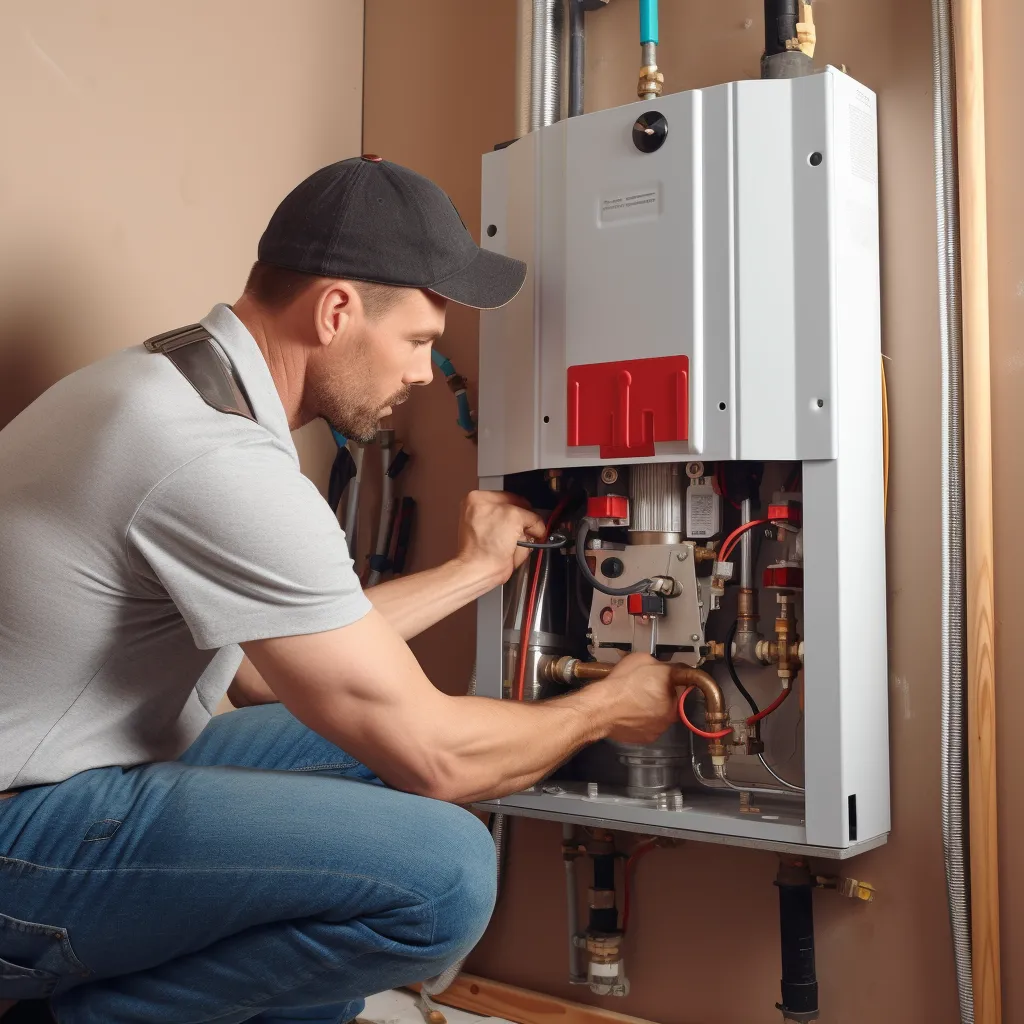
Type of water heater: Some models may be more expensive due to their size and energy efficiency ratings, regardless of whether they run on gas or electricity.
Size of the unit: The larger the unit, the higher the price tag.
Extras: If you want to add automatic shutoff valves or pressure relief valves, you may need to budget for additional costs.
Installation costs: The cost of installation will depend on factors like the scope of the project, additional materials needed, and whether you need new pipes or venting systems.
Labor costs: Professional plumbers may charge hourly or a flat fee for their labor.
Permits: Depending on your local building codes, permits may be necessary before any work can begin.
Location: The availability of technicians and the cost of living in your region could also impact the final price.

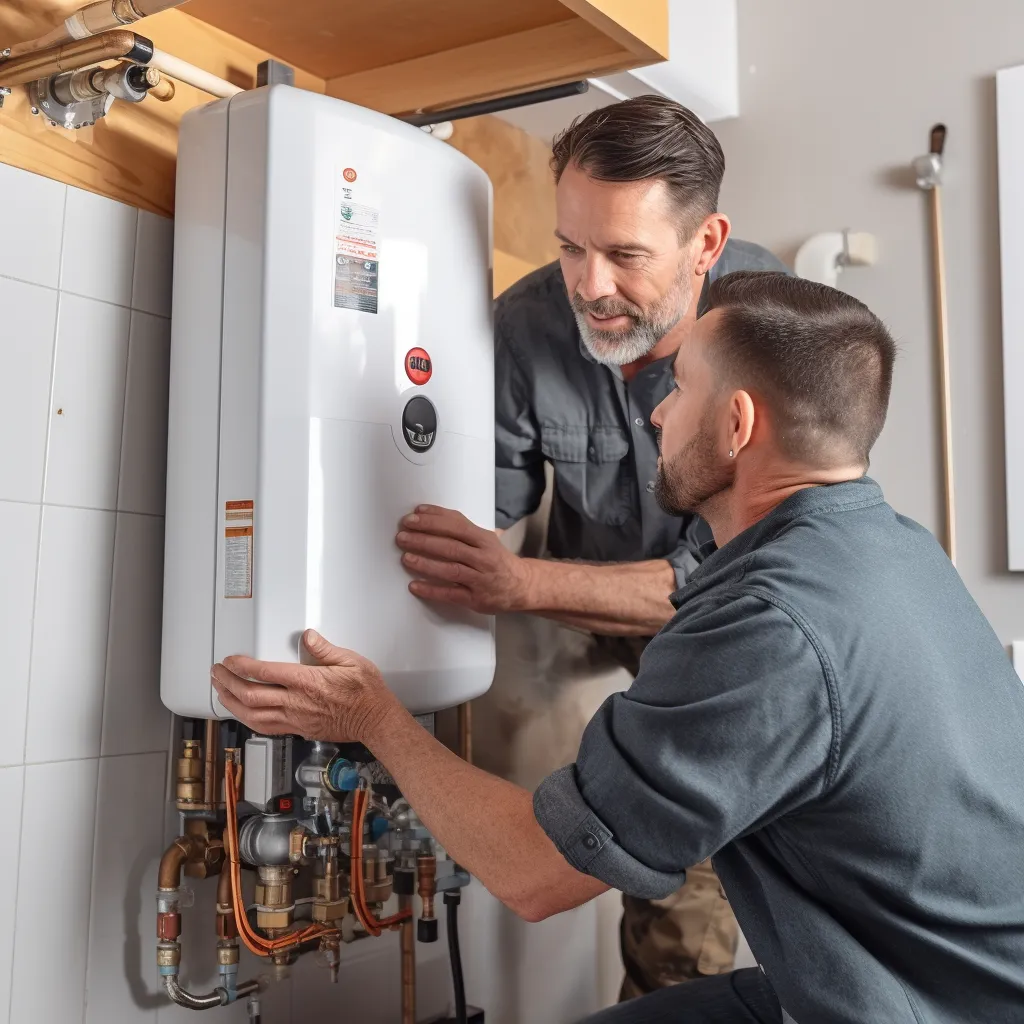
Benefits of replacing
an old water heater
with an energy-efficient one
Upgrade to an energy-efficient water heater for incredible benefits:
Slash your utility bills by up to 50% thanks to their low energy consumption compared to traditional models.
Enjoy a more comfortable and consistent flow of hot water that lasts longer and maintains a perfect temperature.

How to calculate the size
of the water heater you need for your home
Choosing the right hot water heater size is crucial for your family's comfort and your wallet. Avoid the inconvenience of cold showers or energy wastage caused by an overly large heater. Several factors affect the size selection:
Household size matters! A larger household requires a bigger water heater.
Fuel source is also important: electric ones usually have smaller tanks than gas-powered ones.
If you use hot water for multiple purposes, such as laundry, get a larger tank.
Living in a colder region? Consider a larger tank to maintain hotter water.


Research the different types of water heaters
Finding the right water heater for your home doesn't have to be complicated. With so many options available, it's important to consider your specific needs and preferences. Traditional tank models offer convenience, while tankless options save energy. Hybrid models combine the best of both worlds, while solar and heat pump units offer eco-friendly alternatives. By exploring these choices, you can find the perfect fit for your household.
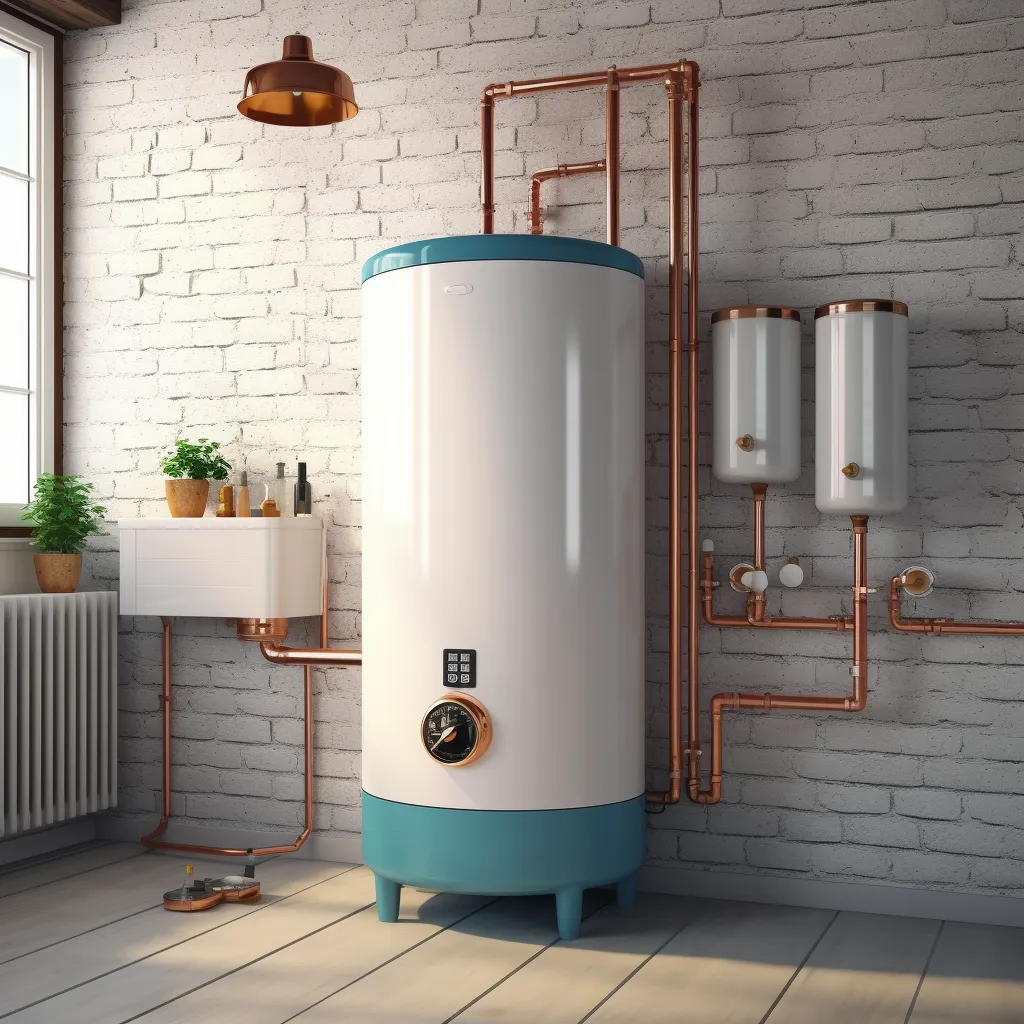
Cost of each type of water heater
Upgrade your water heater without breaking the bank! We know it can be a daunting task, but the final cost doesn't have to be a shock. Here are your options:
Traditional tank heaters are cheap to install, but the monthly bills and short lifespan add up.
Tankless heaters have a longer lifespan and save money on energy, but the initial cost is higher.
Heat pump heaters have moderate prices and can lead to big savings in the future.
Solar heaters are eco-friendly and cost-efficient in the long run, but be prepared for a steep upfront cost.
Smart heaters are the latest tech trend and offer remote control and energy savings.
Condensing heaters are ultra-efficient but come with a high price tag.
Gas heaters are cheaper initially, but electricity can be a better energy-efficient option.
Cost of installation and ongoing maintenance
for each type of water heater
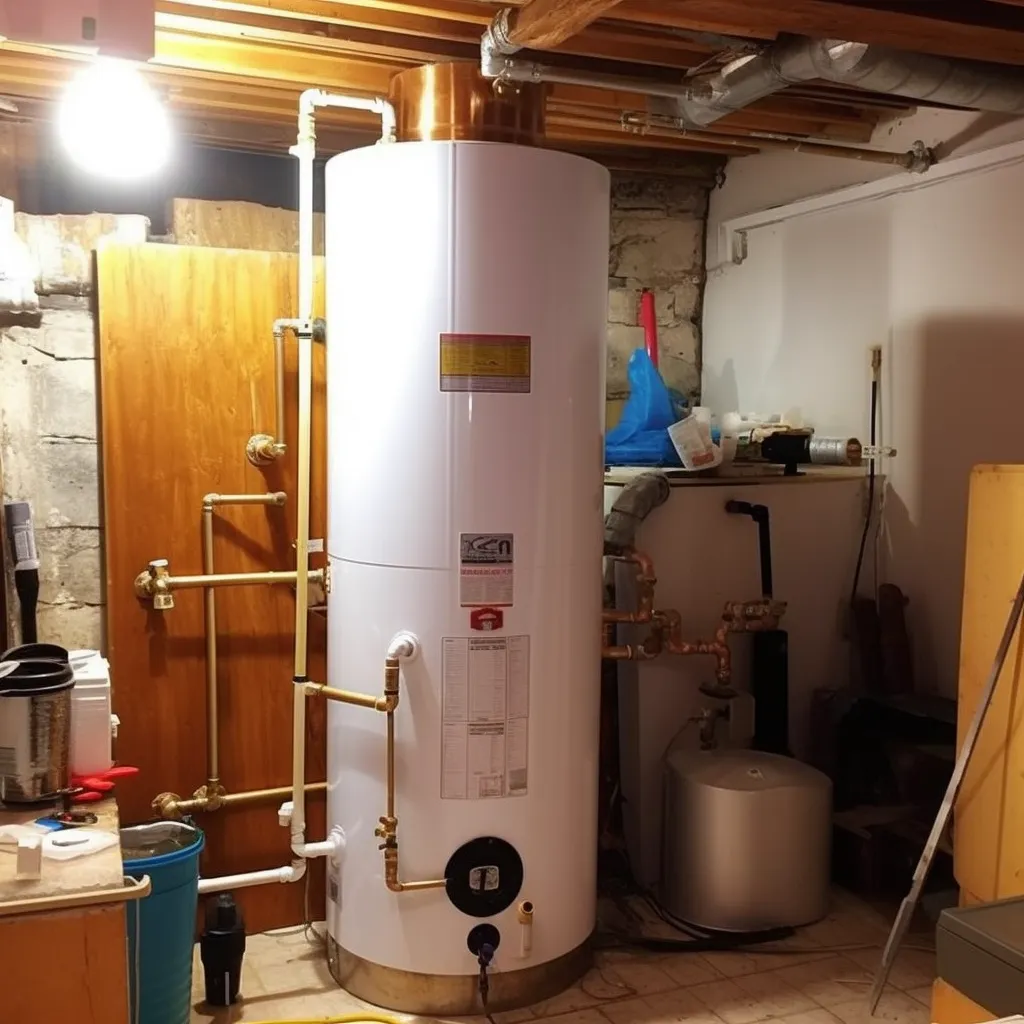
Choose your water heater wisely by considering installation and maintenance costs. Tanks are affordable to install, but maintenance costs can add up over time. Tankless heaters have higher installation costs, but their maintenance is much cheaper, making them a smart investment in the long run. Heat pump heaters have profitable installation costs, like tankless, but require slightly higher maintenance expenses. Solar heaters are expensive to install because they must be connected to your home's plumbing system.
Don't neglect fuel costs when selecting a water heater. Gas heaters are typically more economical than electric models due to their lower energy expenses. Keep in mind that some fuel sources may not be available in all areas.

How to get an accurate estimate
for the cost of a water heater
Find out the complete cost of swapping your water heater, with the installation included, by doing some research. It's not easy, but it's crucial for accurate estimates.
When selecting a water heater, it's important to consider the size and type that best suits your household's hot water usage patterns. Simply identify the number of individuals living in your home and how much hot water you typically use to determine the ideal water heater choice for your needs!
Upgrade your plumbing system with ease by exploring local plumbing companies and getting multiple quotes.
Consider the total cost of your water heater, which includes warranties and additional features that best suit your needs.
Tips to save money on installing a new water heater
Save money on your new water heater with these simple tips:
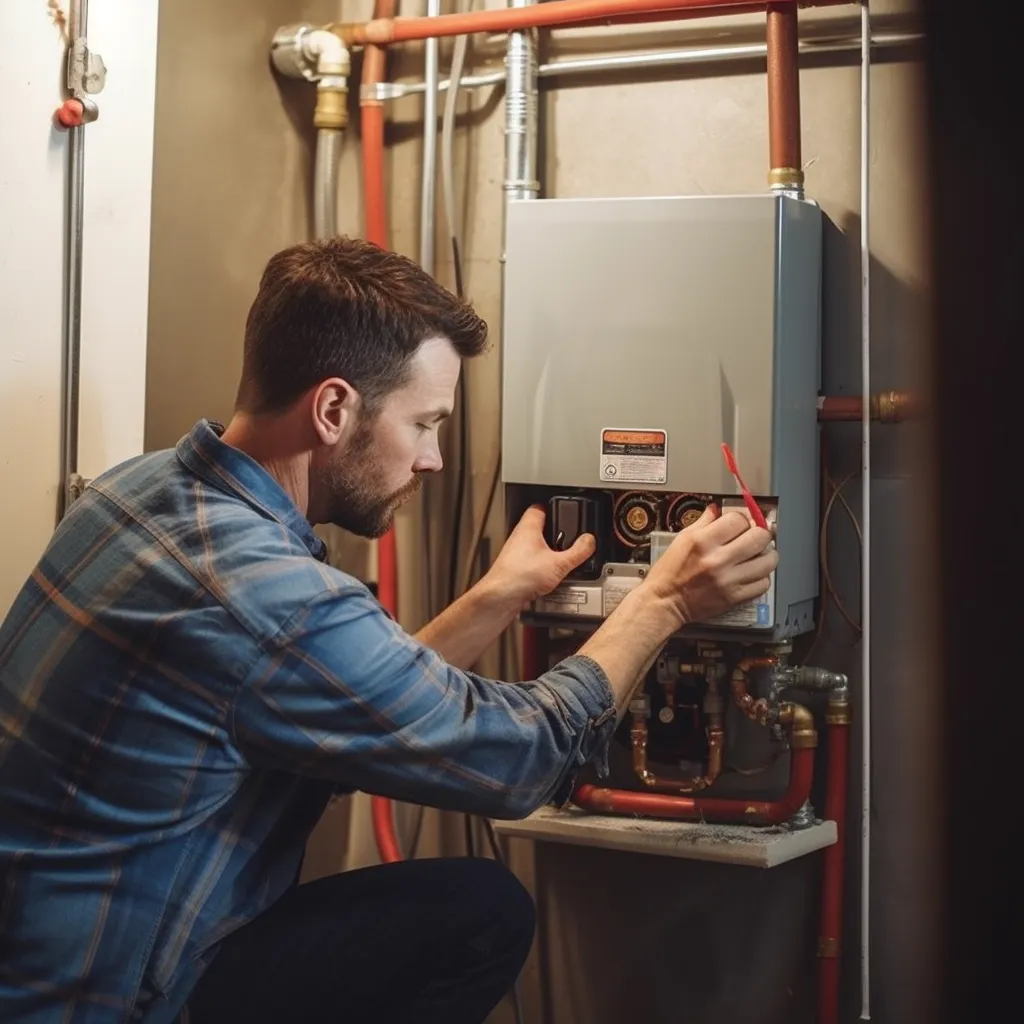
Shop around for the best deals from various retailers and plumbing companies.
Don't forget to ask your local utility company about rebates and tax credits.
While energy-efficient models have a higher upfront cost, they're a smart investment in the long run.
Consider the total cost of ownership, not just the initial price.
Take advantage of bundle deals and manufacturer warranties whenever possible.
Think twice before buying a used water heater - inspect it thoroughly to avoid costly repairs.
Installation can be complex - hire a professional for peace of mind.
What to do if you need services
to replace your water heater
Is your water heater on its last legs? It's time to think about a replacement, but how do you get started? Don't worry - a licensed water heater professional can help. Follow these tips to find the right expert for the job:
Choose someone experienced in water heater replacement and who you can trust.
Research customer reviews on the company's website, Yelp, or Facebook.
Double-check that they have a valid license and insurance policy before hiring.
Get at least three quotes to ensure you're getting the best price.
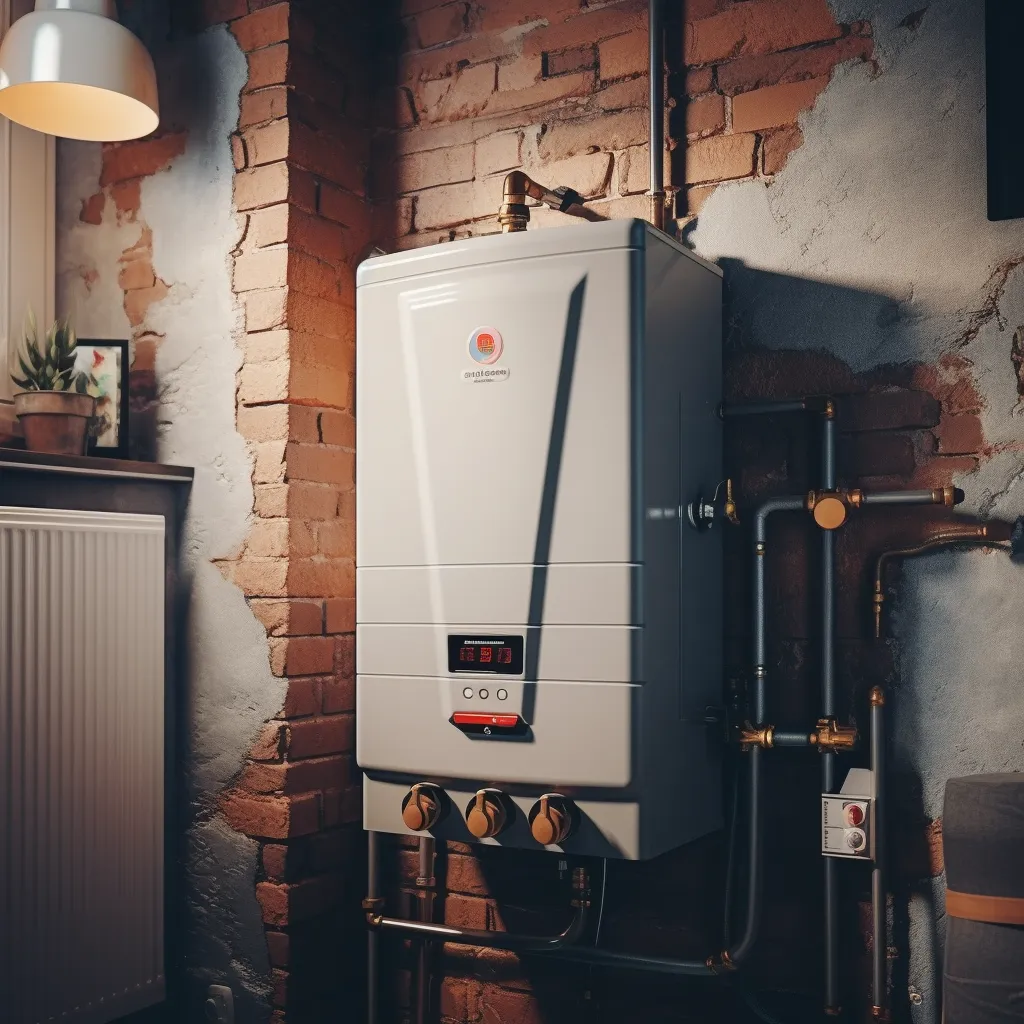
What to expect from a reliable water heater pro
Let us fulfill all your water heater needs! We offer a wide range of services to ensure your satisfaction, including:
Thoroughly inspecting your water heater for repair or replacement.
Providing a transparent cost estimate, covering everything from labor to materials and taxes.
Helping you make an informed decision on the perfect water heater, taking into account its dimensions, efficiency, and affordability.
Completing the entire installation process, from removing your old unit to setting up the new one.
Backing up our workmanship and materials with a quality warranty.
Choose us for a stress-free and reliable water heater experience.
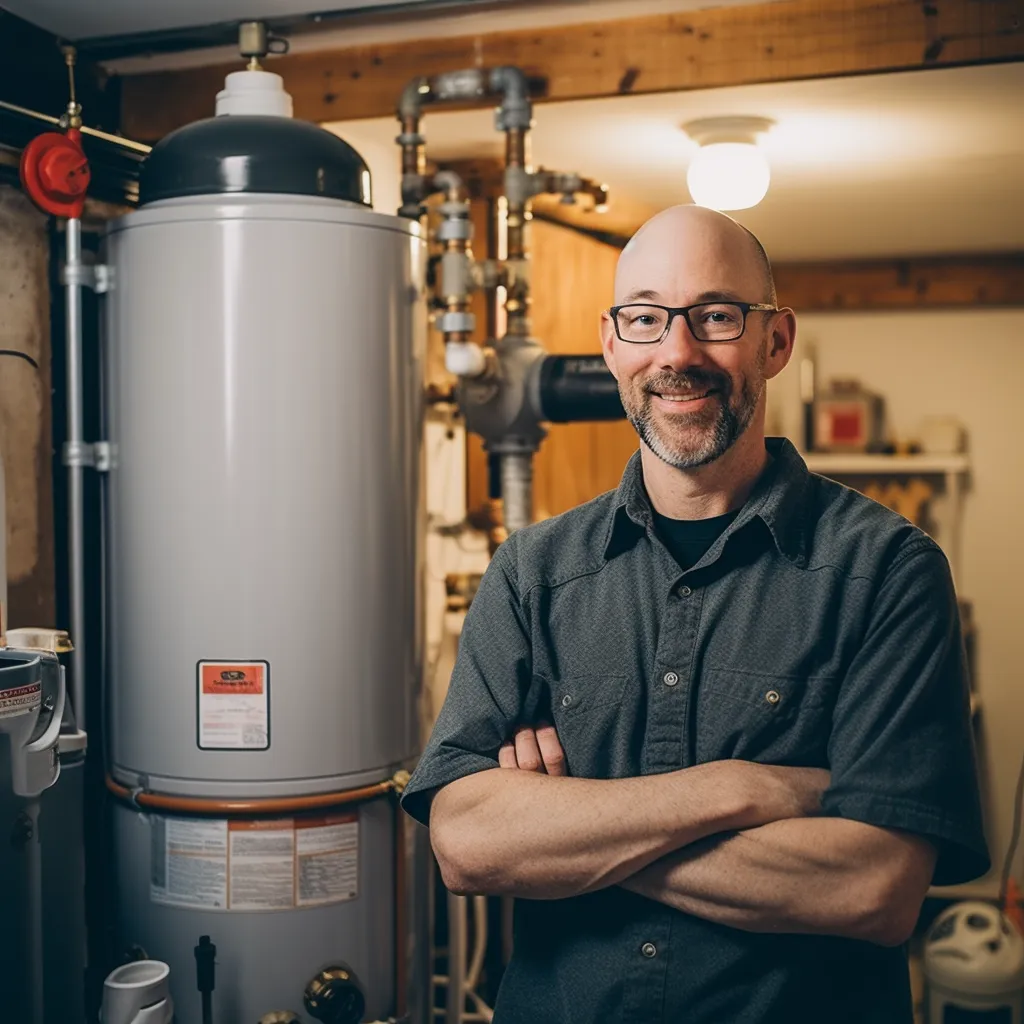
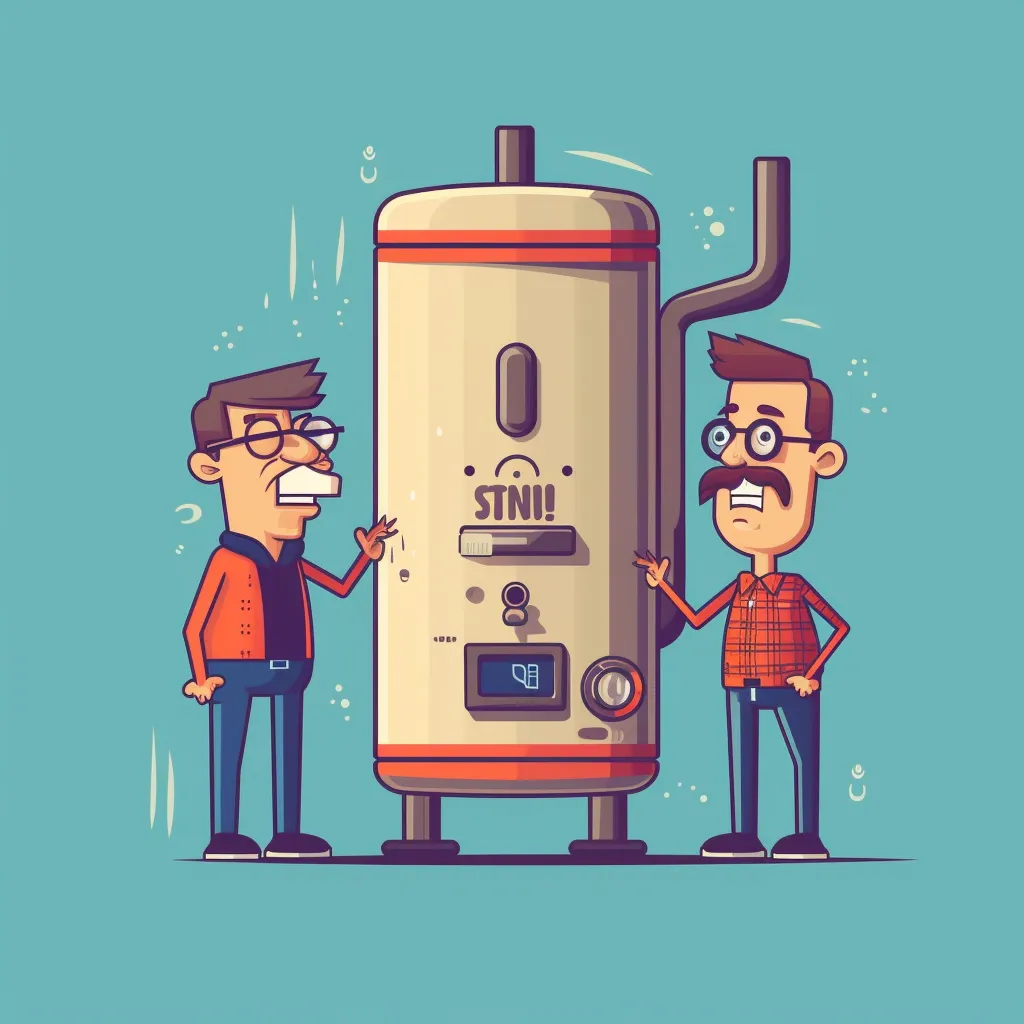
Water heaters don't last forever
Don't wait until it’s too late to replace your water heater. With a typical lifespan of 6-12 years, you need to know when to switch it out. But that's not all - you also need to consider the cost of a new model, which depends on factors like type, size, and maintenance fees. To make the right decision, take the time to research and compare different models. And if in doubt, seek the help of a licensed water heater expert. With their expertise, you could save both time and money in the long run. Plus, you may even be eligible for rebates, incentives or extended warranties when switching to an energy-efficient model.
Contact Us
GET IN FULL TOUCH
PHONE: (510) 345-2489
EMAIL:
john@waterheaterberkeley.com
AquaSaver Water Heaters
Berkeley, CA 94702
